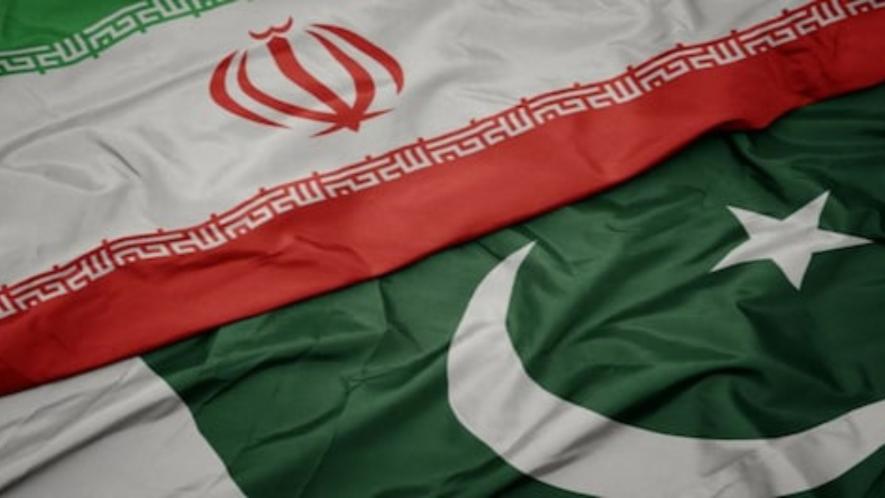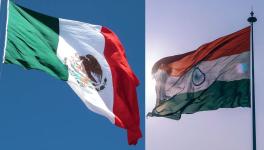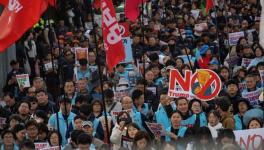Regional Opinion Urges Iran-Pakistan Amity

Unsurprisingly, the eruption of tensions in the Pakistan-Iran diplomatic ties on Tuesday following Tehran’s air strike across the border against Baluchistan is subsiding, which testifies to the political maturity of the two countries. Neither side wants the tensions and both are astute observers of the regional and international environment. Their chosen path of reconciliation becomes a model for other regional states in Central Asia, South Asia and West Asia.
Iran and Pakistan have a troubled history of relations, which bear similarities with the Pakistan-India relationship in some ways, where too issues of national sovereignty and territorial integrity lie enmeshed with backlogs of history and culture and complicated by geopolitics.
At the root of it is the Baluchistan problem, the legacy of 1947 Partition and the unresolved nationality question and resulting alienation, real or imagined threat perceptions, deep-rooted deficiencies in governance and development that cannot be addressed through coercive methods of statecraft that come naturally to the ruling elites in our part of the world — and, indeed, external interference endemic to regions of strategic importance.
Pakistan’s Dawn newspaper carried an excellent write-up by a Baluchi writer giving a resume of Iran-Pakistan border tensions through the past several decades. To my mind, broadly, the historical space has two phases — the period up to the 1979 Islamic Revolution in Iran and the state of play thereafter.
What is of utmost significance here is that the transition from one phase to the other in 1979 was characterised on the one hand by the establishment of an Islamic system of government in Iran based on the concept of Velâyat-e Faqih (Guardianship of the Islamic Jurist) and on the other hand, by the imposition of Pakistan’s “Islamisation” as the underpinning of jihadism, pivoted on Sunni fundamentalism, with a back-to-back deal between the military dictator Gen. Zia-ul-Haq and the US, midwifed by Saudi Arabia, to create a “Vietnam” for the Red Army in Afghanistan.
All through, Pakistan’s US connection was a thorn in the flesh for the Islamic regime in Iran. Imam Khomeini had harsh things to say about Pakistan’s comprador mentality. Of course, much water has flown down the Indus since then and Pakistan is today profoundly disillusioned with the US while Iran, on its part, is openly crossing swords with the US. And both Iran and Pakistan have drawn close to BRICS, emblematic of the “no limit” partnership between Russia and China working towards a poly-centric world order.
That said, there are subplots. Most important, Washington’s impetus to seek out Pakistani military once again as the lodestar of the region’s geopolitics. Therefore, it is only appropriate that the National Security Committee (NSC), Pakistan’s premier authority on security and foreign policy, on Friday ratified Islamabad’s move towards reducing tensions between Pakistan and Iran and underscored a commitment to address mutual security concerns.
In effect, the imprimatur of the military leadership is unmistakably there in the decision taken by the NSC meeting, which was attended by the chairman of the Joint Chiefs of Staff Committee and the chiefs of the Army, Navy, and Air Staff, along with the heads of intelligence agencies. It is a powerful signal to Tehran. The NSC statement said, “The forum expressed that Iran is a neighbourly and brotherly Muslim country, and existing multiple communication channels between the two countries should be mutually utilised to address each other’s security concerns in the larger interest of regional peace and stability.”
The Dawn newspaper commented that the statement “laid the ground for opening a potential pathway towards renewed dialogue and diplomatic engagement.” Interestingly, the statement was preceded by a conciliatory gesture from the Pakistani military, with the ISPR saying, “Going forward, dialogue and cooperation is deemed prudent in resolving bilateral issues between the two neighbouring brotherly countries” — a sentiment that was promptly reciprocated by Iranian foreign ministry, and set the stage for a phone conversation between Caretaker Foreign Minister Jalil Abbas Jilani and his Iranian counterpart Hossein Amir Abdollahian on the same day.
What emerges is that both Pakistan and Iran are on the right side of history but there is always the possibility that the US, which is angling for partnerships to mitigate its acute isolation in the region, is desperately keen to woo the Pakistani military at the present juncture when the country’s fragile civilian leadership is dispirited and there is uncertainty about the country’s future.
The reactions by the major external powers to the surge of Iran-Pakistan tensions clearly show the geopolitical fault lines. Setting aside India, which, regrettably, tends to view any negative tidings concerning Pakistan with schadenfreude, the two other major regional states — China and Russia— have called for restraint and dialogue to resolve the issues. Xinhua news agency, in fact, carried a spate of reports aimed at tamping down the tensions. (here, here, here and here)
In contrast, the alacrity with which President Biden waded into the topic is amazing — “As you can see, Iran is not particularly well liked in the region, and where that goes, we’re working on now. I don’t know where that goes.” The White House national security spokesperson John Kirby told reporters on Air Force One, “We don’t want to see an escalation clearly in South and Central Asia. And we’re in touch with our Pakistani counterparts.”
The Iranian Ministry of Foreign Affairs hit back saying it “does not allow enemies to strain the amicable and brotherly relations of Tehran and Islamabad.” The previous day, the Russian Foreign Ministry spokesperson Maria Zakharova in a statement also alluded to outside interference saying, “The further escalation will only benefit those who are not interested in peace, stability and security in the region.”
Zakharova particularly regretted that such tensions have arisen “between friendly states, members of the SCO, with whom we are developing partnership relations.”
Significantly, against this backdrop, Foreign Minister Sergey Lavrov touched on Afghanistan at some length at a news conference in Moscow on Friday. Lavrov said Taliban is the “de factor power” in Afghanistan and despite “hotbeds of tension and protest… the Taliban control the government.”
While “political inclusivity” remains an issue, Lavrov pointed out that two prominent Afghan leaders still live in Kabul — Hamid Karzai and Abdullah Abdullah. As for Panjshiris, Lavrov, while acknowledging the need to build bridges with them, added the caveat that the “process is not easy. It has never been easy for anyone in Afghanistan.”
Importantly, Lavrov stressed that Russia maintains “contacts with the de facto leadership” of Afghanistan and that “helps us to work, including on promoting external formats that allow us to develop recommendations for Afghans. He expressed the hope that the Pakistani-Iranian tensions will not complicate the working of the so-called Moscow format or the quartet mechanism of Russia-Iran-Pakistan-China regarding Afghanistan and regional security.
At a time when the West is pushing hard to remove the Russian influence in Moldova and the Caucasus and is lurching toward the Caspian and Central Asia as part of its strategy to encircle Russia, Afghanistan’s is becoming an extremely crucial hub in the big-power struggle for the making of a multipolar world order.
Zakharova’s statement concluded by underscoring Russia’s “unwavering readiness to cooperate in the fight against international terrorism in all its forms and manifestations.” Significantly, Kazakhstan, Central Asia’s powerhouse and a close ally of Russia, recently decided to remove the Taliban Movement from terrorist lists.
These are straws in the wind hinting at a critical mass of regional opinion favouring the Taliban’s integration as a factor of regional security and stability, where Pakistan has a transformative role to play. Above all, this episode constitutes a moment of truth in the geopolitics of the region. Iran and Pakistan peered into the abyss, didn’t like what they saw, and quickly retracted. The region heaves a sigh of relief.
MK Bhadrakumar is a former diplomat. He was India’s Ambassador to Uzbekistan and Turkey. The views are personal.
Courtesy: Indian Punchline
Get the latest reports & analysis with people's perspective on Protests, movements & deep analytical videos, discussions of the current affairs in your Telegram app. Subscribe to NewsClick's Telegram channel & get Real-Time updates on stories, as they get published on our website.
























